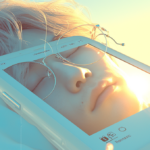HID Global is making the case for biometrics in the healthcare sector’s fight against fraud. In a recent blog post, HID’s Chris Neely highlights how biometric technologies can provide robust identity assurance, which is essential in combating medical and insurance fraud. Neely emphasizes that healthcare fraud, particularly medical identity theft, is a widespread issue that affects patients, healthcare providers, and insurers alike, costing billions of dollars each year.

The blog post outlines the extent of the problem, with data from the U.S. Federal Trade Commission revealing that 27,821 medical identity theft reports were filed in 2022, while 707 healthcare data breaches affected nearly 52 million patients. The financial toll is equally significant, with Allstate estimating that medical identity theft costs the healthcare industry around $41 billion annually.
Biometric technology, particularly facial recognition, is highlighted as a viable solution to the identity challenges in healthcare. By using unique physical traits for identification, biometric systems provide a reliable way to ensure that patients are accurately identified at every point of interaction. This technology reduces the risk of duplicate records and potential fraud by linking a patient’s biometric data directly to their medical records. Neely points out that such a connection not only ensures that patients receive the correct treatments but also helps prevent unauthorized access to medications, thereby addressing the issue of prescription drug abuse.
Facial recognition technology plays a crucial role in reducing insurance fraud by verifying patient identity throughout the healthcare journey—from initial check-in to billing. This prevents individuals from using another person’s insurance information to receive treatment, which drives up costs for both providers and patients. And it streamlines the claims process, reducing the likelihood of fraudulent claims while expediting legitimate ones.
In addition to fraud prevention, HID Global stresses the importance of selecting robust facial recognition systems that are capable of operating reliably in various environments and detecting sophisticated spoofing attempts.
Neely also advocates for a privacy-first approach, highlighting the necessity of systems that comply with data protection regulations and are designed to protect patient data. And he notes that by using edge technology, biometric processing and liveness detection can occur directly on devices, enhancing both security and efficiency while minimizing reliance on centralized processing.
It’s a strong case and well worth reading in full. And for those interested in further exploring how biometrics can further benefit healthcare, HID Global offers a downloadable eBook, Improving Patient Outcomes and Reducing Health Fraud With Biometrics, which provides additional insights into how such technologies can transform the sector.
Source: HID
–
October 9, 2024 – by the ID Tech Editorial Team








Follow Us